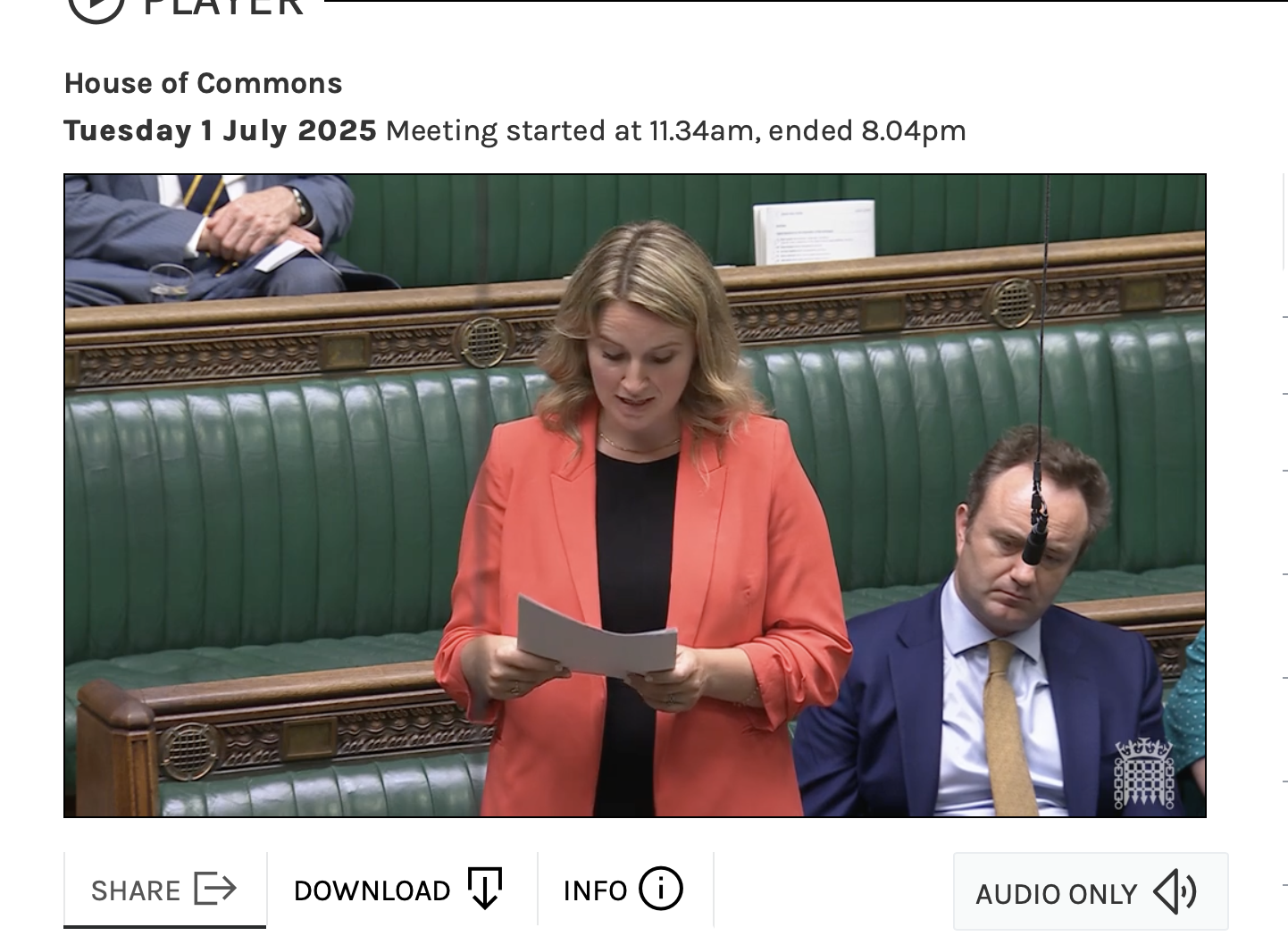-
Maya Ellis, Labour MP for Ribble Valley
-
Jim Shannon, DUP MP for Strangford (Northern Ireland)
-
Connor Rand, Labour MP for Altrincham and Sale West
-
Samantha Niblett, Labour MP for South Derbyshire
-
David Reed, Conservative MP for Exmouth and Exeter East
-
David Chadwick, Lib Dem MP for Brecon, Radnor and Cwm Tawe (Wales)
-
Dr Danny Chambers, Lib Dem MP for Winchester
- For babies, breastfeeding strengthens the immune system, and significantly reduces the risk of infections, obesity, and long-term conditions such as type 2 diabetes, along with providing optimal nutrition,
- For women, breastfeeding lowers the risk of breast and ovarian cancers, supports postnatal mental health, and fosters strong mother–infant bonding.
- For society, improved breastfeeding rates contribute to reducing pressures on the NHS, lowering healthcare costs, and advancing equality by supporting informed choices and better outcomes for all families.
Competition and Market Authority Recommendations
Article 6(2) “(a) a statement that the product is suitable for infants from birth when they are not breast fed; (b) instructions for appropriate preparation, storage and disposal of the product and a warning against the health hazards of inappropriate preparation and storage; (c) a statement concerning the superiority of breast feeding and a statement recommending that the product be used only on the advice of independent persons having qualifications in medicine, nutrition or pharmacy, or other professionals responsible for maternal and child care”.
Commission Delegated Regulation (EU) 127/2016)Article 11(2) “(a) the benefits and superiority of breast feeding; (b) maternal nutrition and the preparation for and maintenance of breast feeding; (c) the possible negative effect on breast feeding of introducing partial bottle feeding; (d) the difficulty of reversing the decision not to breast feed; (e) where needed, the proper use of infant formula.”
“By law, all first infant formula will meet your baby’s nutritional needs, regardless of brand or price. Extra or special ingredients make no difference to product quality. By law, all infant formula sold in the UK must meet the same standards which cannot be exceeded. This means they are all equally suitable for your baby’s growth and development, although they do not have the same health benefits as breastfeeding for you and your baby. For example, they do not help to protect your baby from infections.”
The BFLG recommends that any notice highlights the superiority of breastfeeding over formula feeding in all contexts and refers to research showing how pervasive formula marketing perpetuates an incorrect belief among women of lower and middle socio-economic positions, that ‘breastfeeding and formula feeding provide a baby with the same health benefits’.(3)
3 Athanasiadou M, Sheen F, Smith AD, Llewellyn C, Conway R. 2025. Cross-Sectional Associations Between Exposure to Commercial Milk Formula Marketing, Beliefs About Its Use, and Socioeconomic Position Among Pregnant Women and Mothers in the UK. Matern Child Nutr. 24: e70022. https://doi.org/10.1111/mcn.70022
The Competition and Market Authority recommendations fall into the following categories:
-
- ● Eliminating brand influence in healthcare settings;
- ● Equipping parents to make strong choices in retail settings;
- ● Strengthening the labelling and advertising rules; and
- ● Ensuring effective enforcement of current and updated regulations
The CMA took into account Governments’ wider policy objectives, including supporting breastfeeding and the incorporation of the United Nations Conventions on the Rights of the Child into the law in Scotland. and made 11 Recommendations
Recommendation 1.1: Timely, clear, accurate and impartial information on nutritional sufficiency of all infant formula products in healthcare settings
Recommendation 1.2: Standardised infant formula labelling in healthcare settings
Recommendation 2.1: Clear, accurate and impartial information on the nutritional sufficiency of all infant formula products on retail shelves and in online shopping channels
Recommendation 2.2: Display of all infant formula brands together on retail shelves
Recommendation 3.1: Clear, accurate and impartial information on the nutritional sufficiency of all infant formula products on product labelling
Recommendation 3.2: Prohibiting intangible and/or non-verifiable messages on infant formula and follow-on formula labels
Recommendation 3.3: Extending the restriction on advertising to follow-on formula
Recommendation 3.4: Clarify what constitutes advertising
Recommendation 3.5: Permit the use of gift cards, vouchers, loyalty points and coupons in lieu of cash to purchase infant formula )governments will need to ensure that these methods of payment are not used as vehicles to raise brand awareness and reputation. In particular, they should not be used to advertise infant formula or follow-on formula (in line with Recommendation 3.3).
Recommendation 4.1: Effective enforcement
Recommendation 4.2: Strengthening the competent authority role
_____________________________________________________________
UK Legislation: Article 6(2) “(a) a statement that the product is suitable for infants from birth when they are not breast fed; (b) instructions for appropriate preparation, storage and disposal of the product and a warning against the health hazards of inappropriate preparation and storage; (c) a statement concerning the superiority of breast feeding and a statement recommending that the product be used only on the advice of independent persons having qualifications in medicine, nutrition or pharmacy, or other professionals responsible for maternal and child care”.
Edmund Leagrave, Parliamentary Assistant to Jess Brown-Fuller: edmund.legrave@parliament.uk
Jess Brown-Fuller, Liberal Democrat MP for Chichester: jess.brownfuller.mp@parliament.uk


